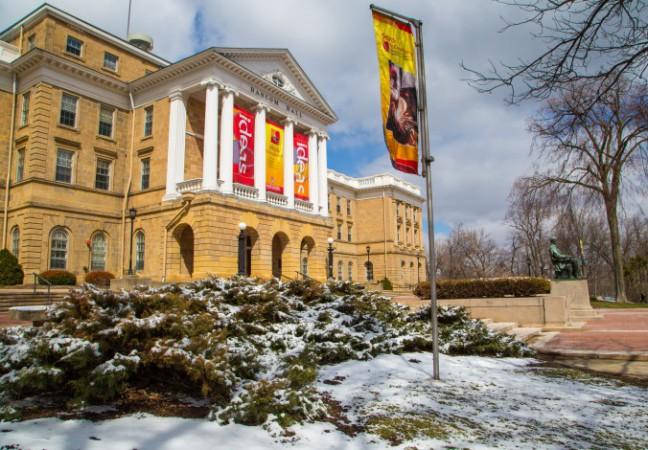Three Muslim college students were shot dead on Feb. 10, execution style, outside of their home on the University of North Carolina campus. Deah Barakat, Yusor Abu-Salha and Razan Abu-Salha were three Muslim college students much like the ones on our campus. Three Muslim college students were killed heartlessly, based on hate for who they were. It was a tragedy that reflected the extreme Islamophobia engrained in our media and society. While the news downplayed the murders as a parking dispute, it was apparent the motive was one of extreme hatred.
For me, going to class the next day was extremely difficult. Putting a forced smile on my face, I pretended to go about my day as normal. In between classes I received texts from family urging me to stay safe. I received several updates from social media about how my fellow Muslim students on campus were completely heartbroken, and found the day equally difficult. It was surreal to be so broken, yet see many professors and students unaware of the pain their fellow students were experiencing at that very moment. It was as if I was in a different universe, going through the motions while my mind was somewhere else completely. From students feeling sad and angry to some students even feeling unsafe, the tragedy reached far and wide. For the first time I, myself, was conscious about the headscarf I wear every day. I heard my friends speak about how this was the first time they felt fear. This was the first time many students felt the sentiment that being Muslim might make them a target of hate crimes such as this incident.
It was at that moment I felt so lost on campus that I received kind emails from faculty such as Joshua Johnson from the Multicultural Student Center and from student organizations. As the president of the Muslim Students Association, I received these emails so I could relay them to general body members. These messages of solidarity and support provided a sense of solace and a clear message that this campus was a safe space for Muslim students.
Thursday evening the MSA hosted two leading national community activists, Linda Sarsour and Dawud Walid, who addressed racism and prejudice. The two speakers facilitated a vigil in response to the events in Chapel Hill at the MSC shortly after the lecture. Over 70 students came together to express their emotions and feelings, and what I began to see was the immense potential our campus has. Students from all different racial and religious backgrounds sat together and expressed their condolences and emotions.
You may ask why this event, which occurred across the United States, have such a deep effect on students here in Wisconsin. Why did some of your fellow Badgers tighten their headscarves as they left their apartments? The answer was simple: because the students in Chapel Hill were just like the students on our own campus. In pictures I saw the Muslim students I study with at College Library during finals or organize events with through the MSA. It was apparent the incident had a deeper question of Islamophobia, but the media just played off the tragedy by focusing on a parking dispute. In this denial the media sent a clear message to students: Your lives and deaths were not worth more than a mere parking spot.
As a Muslim student, I initially hesitated to write on another subject that applied to my Muslim identity. When I saw the media coverage of the shooting, however, I saw how this was an opportunity to change the narrative. To many students, Chapel Hill quite frankly was an ignored headline or a headline lost in the sea of cat videos on Facebook. In this light, I question everyone to be aware of the greater conversation that is happening. Don’t just accept the fact that we live in a bubble as students and that these incidents are “too depressing to talk about.” Look to your classmates and be aware of all of the struggles and pain they are going through. To my fellow Muslim students, I urge us to continue educating what our faith stands for in a time where so many sources are portraying the exact opposite. To my fellow Badgers from different backgrounds, help educate those around you and challenge the biases you face. As a Badger community with individuals from all different backgrounds and experiences, it is vital to make this campus a safe home for everyone. In such a difficult time, I find solace in what Yusor Abu-Salha, one of the Chapel Hill shooting victims, said in an interview prior to her death, “That’s the beautiful thing here. There’s so many different people from so many different places, of different backgrounds and religions — but here we’re all one. One community.”
Naman Siad ([email protected]) is a senior majoring in community and environmental sociology.








